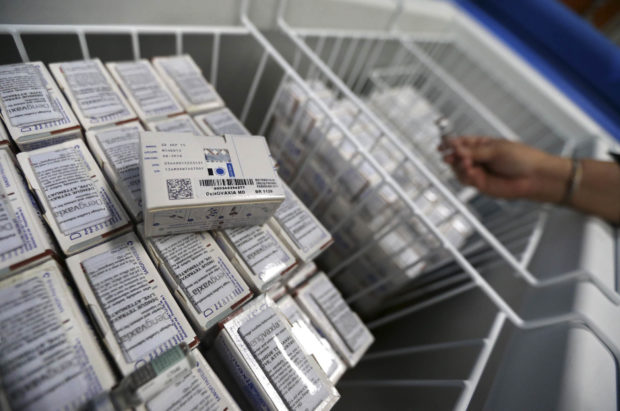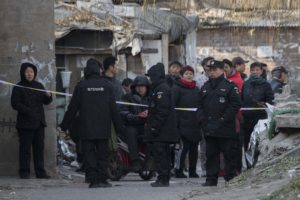
Dengvaxia dengue vaccine made by Sanofi Pasteur SA that is good until August 2018. These are part of the 7,607 vials which are equivalent to 38,035 doses currently stocked in vaccine refrigerators or biological refrigerators at the Philippine Children’s Medical Center (PCMC) Medical Center. Other Dengvaxia vaccines here are also good until May 2018.
INQUIRER PHOTO/LYN RILLON
The Department of Health (DOH) will look into the reason why the government bought the now-controversial vaccine, Dengvaxia, for P1,000 per dose instead of P600, Health Secretary Francisco III said on Wednesday.
This after lawmakers during the House committee on good government and public accountability on the botched dengue immunization program found that the cost-effectiveness study commissioned by Sanofi Pasteur recommended the vaccine to be bought for $21 or P1,000.
“Nagulat talaga ako kasi hindi ko alam ‘yon e (I was really surprised because I do not know those details.) I was never privy to that information, if there was any. First time I’ve heard it this afternoon,” Duque told reporters after the hearing.
“So we’ll have to validate and understand the reason for the price differential kasi malaki rin yung (there’s a huge gap in the) price differential. So I don’t know the economic factors that were introduced in the study that did the pricing,” he added.
The study was led by Dr. Hilton Lam, a member of the DOH’s Formulary Executive Committee. Lam admitted that he was paid by Sanofi Pasteur for P300,000 for undertaking the research. He said the company paid the team about P3 million for the study.
This did not sit well with the lawmakers, who said it was inappropriate for him to undertake the study being a member of the FEC, the DOH body that approves the medicines to be included in the National Formulary, or the list of drugs the government can buy and use.
Lam told lawmakers that the vaccine’s threshold price is at $13 per dose (P600) while the “societal price” is at $21 (P1,000) per dose. He said the latter amount included “productivity losses” or the accounting of one’s future income if he dies or the loss of income if someone’s parents die.
Albay Rep. Joey Salceda took swipe at Lam’s explanation, saying he “would probably buy the drug” but not Lam’s logic.


